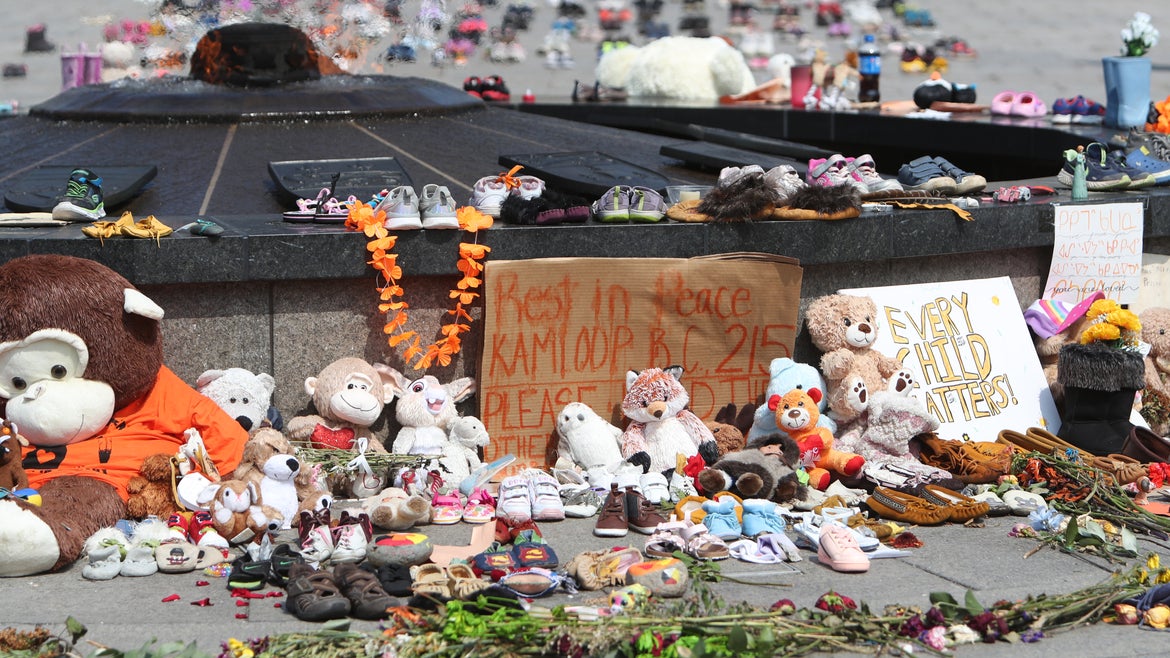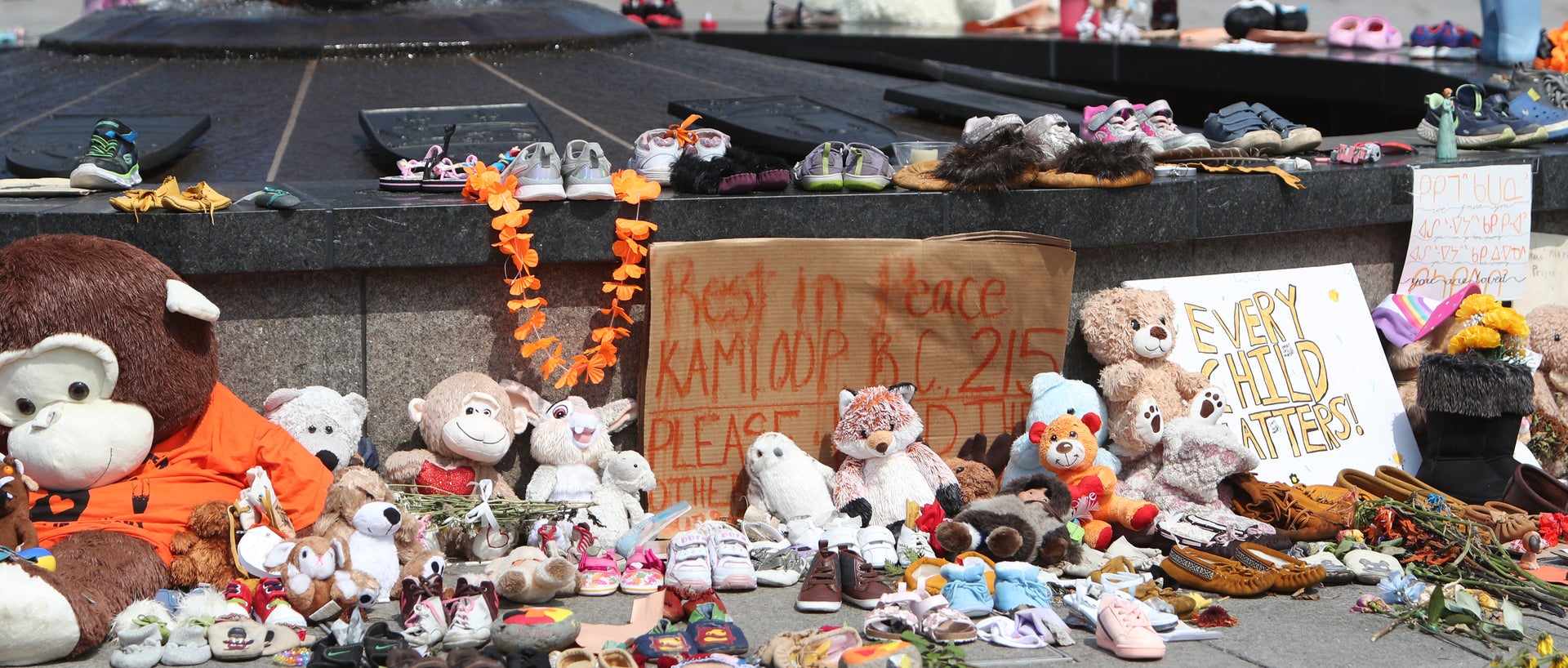This comes as thousands of bodies have been found in mass graves at former residential schools across Canada, and as Indigenous communities call for funding to examine even more potential burial sites.
Canada’s federal government is now committing $321 million to the Indigenous community amid the discovery of thousands of unmarked graves at residential schools across the country. The money will go toward more searches of potential burial sites and supporting survivors and communities affected by the harmful policy.
Crown-Indigenous Relations Minister Carolyn Bennett made the announcement Tuesday following several minutes of prayer led by Indigenous elders.
“For many people across Canada, the recent news of finding unmarked graves at residential schools was an awakening to a deeper knowledge of the truth and the true horror of residential schools and the continuing impact on indigenous peoples today. These truths have been known by indigenous communities for years,” she said. “As a country we know the truth. Once you know the truth you cannot unknow it.”
Canada, in tandem with the Catholic Church, adopted the Indian residential school system from the 1870s to the 1990s as a way to remove Indigenous children from the influence of their culture to forcefully integrate, over time, Indigenous populations with the dominant European culture quickly taking over the country. Many, including those within the Canadian government, have called the policy cultural genocide.
Attendance at the boarding schools was mandatory, and reports of sexual and physical abuse, overwork, disease and hunger were common. The United States also instituted its own set of residential schools. The survivors of those residential schools have their own stories of enduring similar abuses.
In light of what Bennett called the “summer of reflection,” she announced the government is now adding an extra $83 million to fund searches of potential burial sites, and to commemorating the children who died at residential schools. This will be in addition to a $27 million program that was previously dedicated to the project.
Additionally, $100 million will be allocated toward the management of former residential schools by Indigenous people, whether that means demolishing the buildings or fixing them up.
Another $107 million will be dedicated to helping Indigenous communities heal from intergenerational trauma, including funding mental health services.
Authorities are dedicating $20 million to build a national monument in the country’s capital of Ottawa to honor residential school survivors and children who never made it home.
Bennett explained that the funding comes ahead of the newly-announced federal holiday, National Day for Truth and Reconciliation, to be observed on Sept. 30 to recognize the legacy of residential schools in Canada.
The day was previously known as Orange Shirt Day, where people were encouraged to wear orange t-shirts to raise awareness of the atrocities of the residential school system. Last month it was elevated to a national holiday in light of the discoveries of mass graves.
“All Canadians are now realizing what it must have felt like to be a parent whose child was taken from them against their will and then never returned home,” Bennett said. “As we prepare for the National Day of Truth and Reconciliation on September 30, I hope all Canadians will read or reread the TRC’s (Truth and Reconciliation Commission) Calls to Action and especially volume four of that final report.”
The Government of Canada estimates that more than 150,000 First Nations, Métis and Inuit children were separated from their families during Canada’s use of the residential school system.
The TRC estimated that more than 4,100 students died in these schools of disease, but the organization says the actual toll could be much higher.
“The exact number of children who died at school may never be known, but the death rates for many schools, particularly during times of epidemic or disease, were very high,” according to the TRC’s Missing Children Project.







